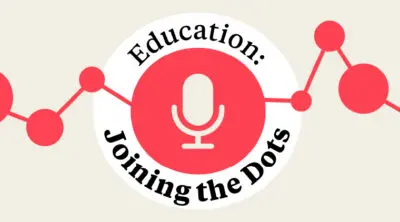Working memory and Recall
Recall is now on Testwise! Find out more about working memory and the benefits of Recall now being on Testwise.
Working memory and processing speed challenges affect up to 15%* of students, often in ways that are easy to miss. Early detection of working memory difficulties can make a significant difference in learning outcomes.
Recall, now available on Testwise, screens for working memory and processing speed difficulties in children aged 7–16. Giving you instant, actionable insights to help identify students who may need classroom interventions and tailored support strategies, Recall evaluates three core components of working memory through engaging sub-tests:
Recall is now on Testwise! Find out more about working memory and the benefits of Recall now being on Testwise.
Recall works well with a range of our most popular products.

Exact
Recall provides cognitive context behind slow working speeds picked up by Exact, validating results as part of a wider profile and providing the evidence needed for JCQ access arrangement applications.
CAT4
Add depth to CAT4 by identifying working memory and processing speed. This can help to mitigate for low SAS and/or build a more detailed picture of cognitive strengths and challenges.
NGMT & Star Maths
Shows how memory/processing issues may impact maths fluency or problem-solving in NGMT/Star Maths.
NGRT & Star Reading
Recall identifies underlying cognitive barriers (e.g. memory, processing) that may explain unexpected NGRT/Star Reading outcomes impacting comprehension.
PASS
Can help to understand why some students might report low confidence, motivation or self-efficacy in PASS (due to unseen cognitive challenges).
Working memory/processing speed is one of the leading reasons for exam access arrangements to be issued. Results from Recall can be used to complete JCQ form 8.


Education Specialist Emma Dibden outlines the challenges for inclusive SEND provision in mainstream schools and suggests some solutions.

We discuss inclusion and leadership with David Bartram OBE, Director of Prescient Education, and Berna Bouwer, Corporate Head of Inclusion at GEMS Education.

Discover practical tools and strategies to support SEND learners with inclusive, data-driven education approaches for better identification and outcomes.
Simple and efficient screening to identify students entitled to exam access arrangements.
Provides a unique profile of students' strengths and areas for development.
A digital, adaptive, termly test that measures maths attainment.
A fully adaptive, standardised, termly reading assessment.
A tool that supports students’ wellbeing in learning and offers practical next steps.
From webinars to bespoke sessions, our comprehensive and flexible training programmes ensure you can maximise your GL Assessment tools.
Turn insights into actionable outcomes. Unlock the full power of your assessment data with dedicated support from our Education Advisors.
All of our assessments come with a suite of helpful guides designed to get you started and keep benefiting from the data. Technical information and platform support are here too.
Need to place an order? Or have a technical question? You’ll find our contact details here – people, not call centres, just a phone call away.
Working memory is a temporary storage system under attentional control that underpins our capacity for complex thought (Baddeley, 2007). Imagine, for example, multiplying two numbers together. The numbers need to be held in a short-term store while you use learned multiplication rules to perform the calculation.
Working memory plays an important role in supporting the acquisition and development of educational skills. Performance on working memory measures is highly predictive of several skills, including literacy and mathematics. Poor performance is also known to be associated with a wide range of learning and neurodevelopmental difficulties.
The individual report shows a child’s standard age score for each of the sub-tests, as well as a composite score for working memory and a measure of processing speed, which can be used as evidence to support applications for exam access arrangements.
Reports also show: confidence intervals, centile scores, age equivalence, memory span and average time taken to complete the assessment.